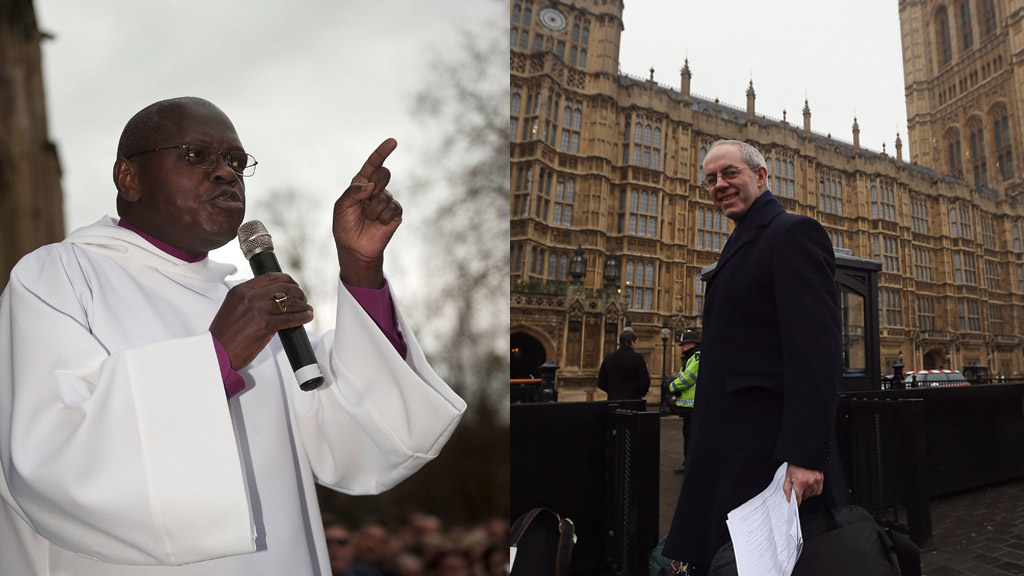Archbishops warn families ‘will pay the price’ of reforms
The Archbishop of Canterbury is among 43 bishops condemning government plans to change the benefits system, saying it will have a “deeply disproportionate” effect on children.
The Most Rev Justin Welby has put his name to an open letter to a newspaper warning that “children and families will pay the price” if plans to change the system go ahead in their current form.
The Church of England’s second highest ranking cleric, the Archbishop of York, Dr John Sentamu, has also backed the letter to the Sunday Telegraph.
Work and pensions secretary Iain Duncan Smith, who is attempting to steer the reforms through parliament, has said the Welfare Benefits Uprating Bill is needed to help get spending “back under control” and create a fairer deal for taxpayers.
The bill will cap benefit rises at 1 per cent a year until 2016.

But Archbishop Welby, who will be formally enthroned at Canterbury Cathedral on 21 March, said the legislation would remove the protection given to families against the rising cost of living and could push 200,000 children into poverty.
‘Duty’
He said: “As a civilised society, we have a duty to support those among us who are vulnerable and in need. When times are hard, that duty should be felt more than ever, not disappear or diminish.
“It is essential that we have a welfare system that responds to need and recognises the rising costs of food, fuel and housing.
“The current benefits system does that, by ensuring that the support struggling families receive rises with inflation.
These changes will mean it is children and families who will pay the price for high inflation, rather than the government Archbishop of Canterbury.
“These changes will mean it is children and families who will pay the price for high inflation, rather than the government.”
He added: “Politicians have a clear choice. By protecting children from the effects of this bill, they can help fulfil their commitment to end child poverty.”
The newspaper said that the archbishop’s intervention signals his willingness to enter political debates on issues he believes are the church’s responsibility to address, a policy for which his predecessor, Dr Rowan Williams, faced criticism.
A spokeswoman for the Department for Work and Pensions said: “In difficult economic times we’ve protected the incomes of pensioners and disabled people, and most working age benefits will continue to increase 1 per cent. This was a tough decision but it’s one that will help keep the welfare bill sustainable in the longer term.
“By raising the personal allowance threshold, we’ve lifted two million people out of tax altogether, clearly benefiting people on a low income.”